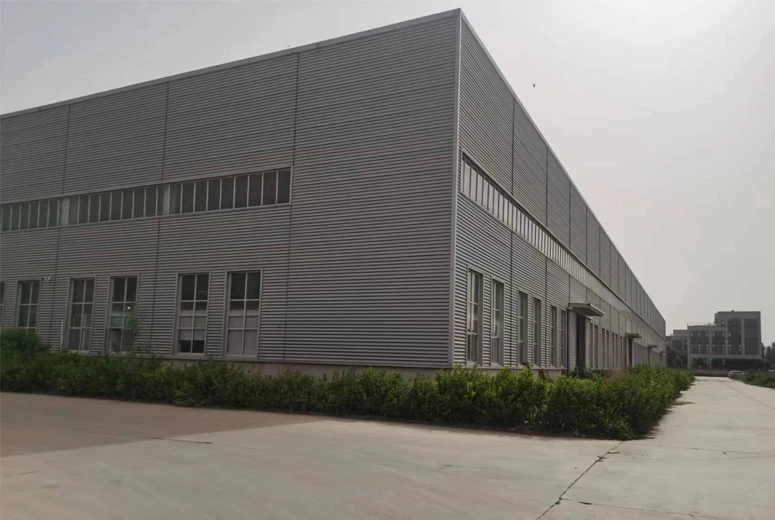cable tray making machine
Understanding Cable Tray Making Machines An Overview
In the modern industrial landscape, effective and efficient management of electrical cabling is paramount. The rise of cable tray systems has transformed how industries handle the routing and support of electrical cables. At the heart of this revolution are cable tray making machines, which streamline the manufacturing process and ensure high-quality production. This article delves into the intricacies of these machines, their advantages, and their essential role in contemporary construction and industrial operations.
What is a Cable Tray?
A cable tray is a structural system used to support insulated electrical cables. It serves as an alternative to traditional conduit systems, offering numerous benefits, including easier installation, better heat dissipation, and enhanced protection against environmental factors. Cable trays come in various materials like steel, aluminum, and fiberglass, and are available in different designs such as ladder, perforated, and solid bottom trays, catering to diverse installation needs.
The Role of Cable Tray Making Machines
Cable tray making machines are specialized equipment designed for the efficient production of cable trays. These machines employ advanced technology to cut, bend, and assemble metal sheets into the desired tray shapes. The manufacturing process typically involves several stages, including shelf manufacturing, side rail forming, and tray assembly, all of which can be automated for improved precision and faster output.
Key Features of Cable Tray Making Machines
1. Automation Capabilities Modern cable tray making machines often come with automated features that enhance productivity. Automated feeds, cutting, and bending mechanisms reduce manual labor, minimize errors, and increase the overall speed of production.
2. Customizability Manufacturers can adjust the settings of these machines to produce cable trays of varying sizes and shapes. This flexibility means that they can quickly adapt to customer specifications and market demands.
cable tray making machine

3. Robust Construction Given the heavy-duty nature of cable trays, these machines are built to withstand the rigors of metalworking and produce high-strength products. High-quality materials and engineering ensure durability and longevity.
4. User-Friendly Interface With technological advancements, many cable tray making machines are equipped with intuitive control panels that simplify operation. Operators can easily monitor production processes and make adjustments as needed.
Advantages of Using Cable Tray Making Machines
1. Increased Efficiency The automation and speed of these machines significantly reduce production time compared to traditional fabrication methods, allowing manufacturers to meet tight deadlines.
2. Consistent Quality With precision engineering involved in the manufacturing process, cable trays produced by these machines exhibit minimal variance in quality. This consistency ensures that the trays meet the required standards essential for safety and performance.
3. Cost-Effective Production Although the initial investment in a cable tray making machine may be substantial, the long-term savings in labor, material waste, and increased production capacity often justify this expense.
4. Environmental Considerations Efficient manufacturing processes often lead to less scrap and waste, aligning with sustainable practices in the industry. Many machines are designed to recycle offcuts, further minimizing environmental impact.
Conclusion
In summary, cable tray making machines play a crucial role in the efficient production of cable tray systems that are essential for modern electrical installations. Their advanced features, efficiency, and ability to produce high-quality products make them indispensable in numerous industries, from construction to data centers. As technology continues to evolve, these machines will likely become even more sophisticated, further enhancing their capabilities and supporting the growing demands of infrastructure development globally. Investing in cable tray making machines not only benefits manufacturers but also contributes to smoother and more reliable electrical installations for future generations.
-
High Frequency Straight Seam Welded Pipe Production Line-BzZhou Xinghua Machinery Equipment Manufacturing Co., LTD.|line pipe steel&welded gas pipeNewsJul.30,2025
-
High Frequency Straight Seam Welded Pipe Production Line-BzZhou Xinghua Machinery Equipment Manufacturing Co., LTD.|High Precision&Automated SolutionsNewsJul.30,2025
-
High Frequency Straight Seam Welded Pipe Production Line - BzZhou Xinghua Machinery Equipment Manufacturing Co., Ltd.NewsJul.30,2025
-
High Frequency Straight Seam Welded Pipe Production Line-BzZhou Xinghua Machinery Equipment Manufacturing Co., LTD.|Precision Welding, High EfficiencyNewsJul.30,2025
-
High Frequency Straight Seam Welded Pipe Production Line|BzZhou Xinghua|Precision Welding&EfficiencyNewsJul.30,2025
-
High Frequency Straight Seam Welded Pipe Production Line - BzZhou Xinghua|Precision Engineering&EfficiencyNewsJul.30,2025


